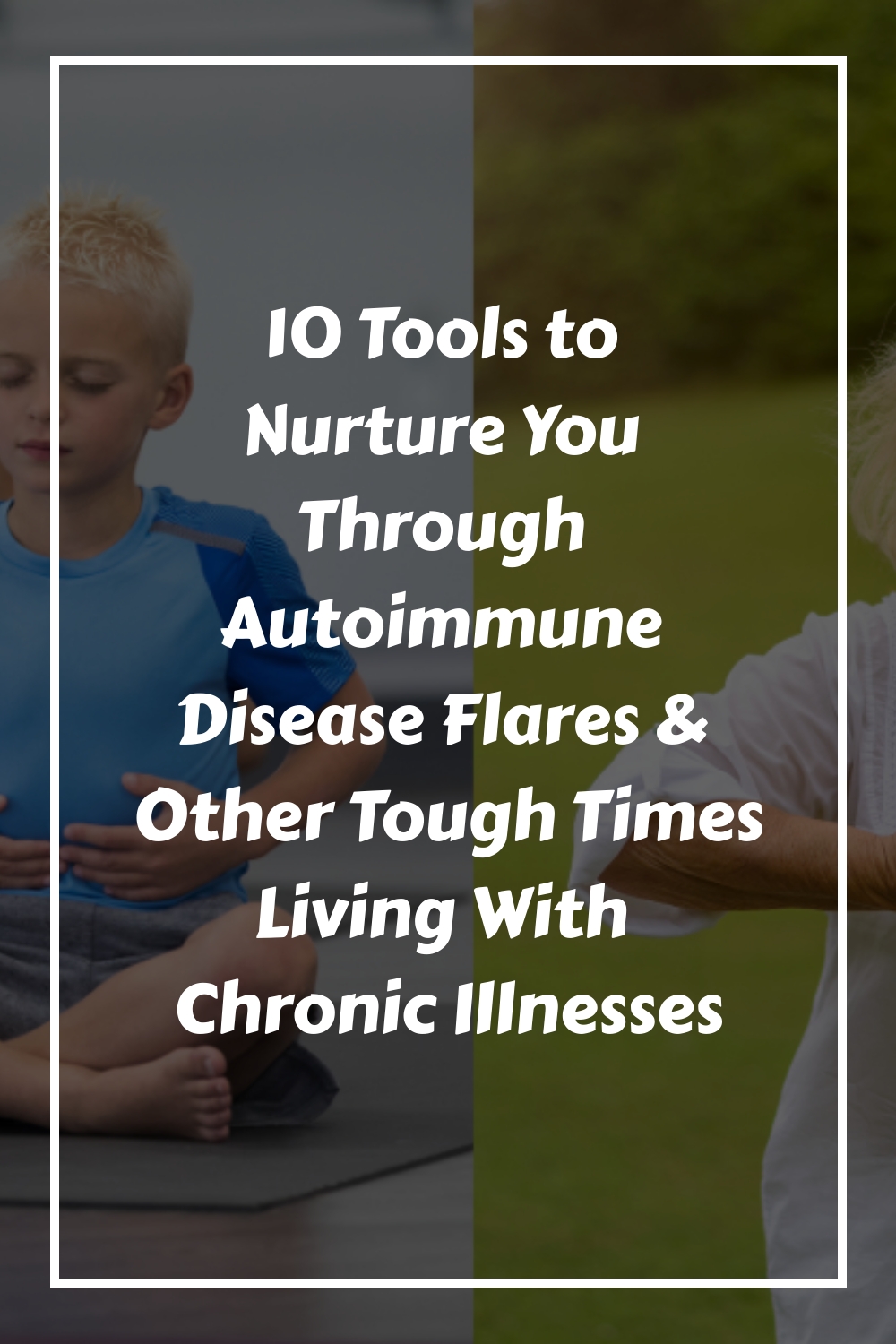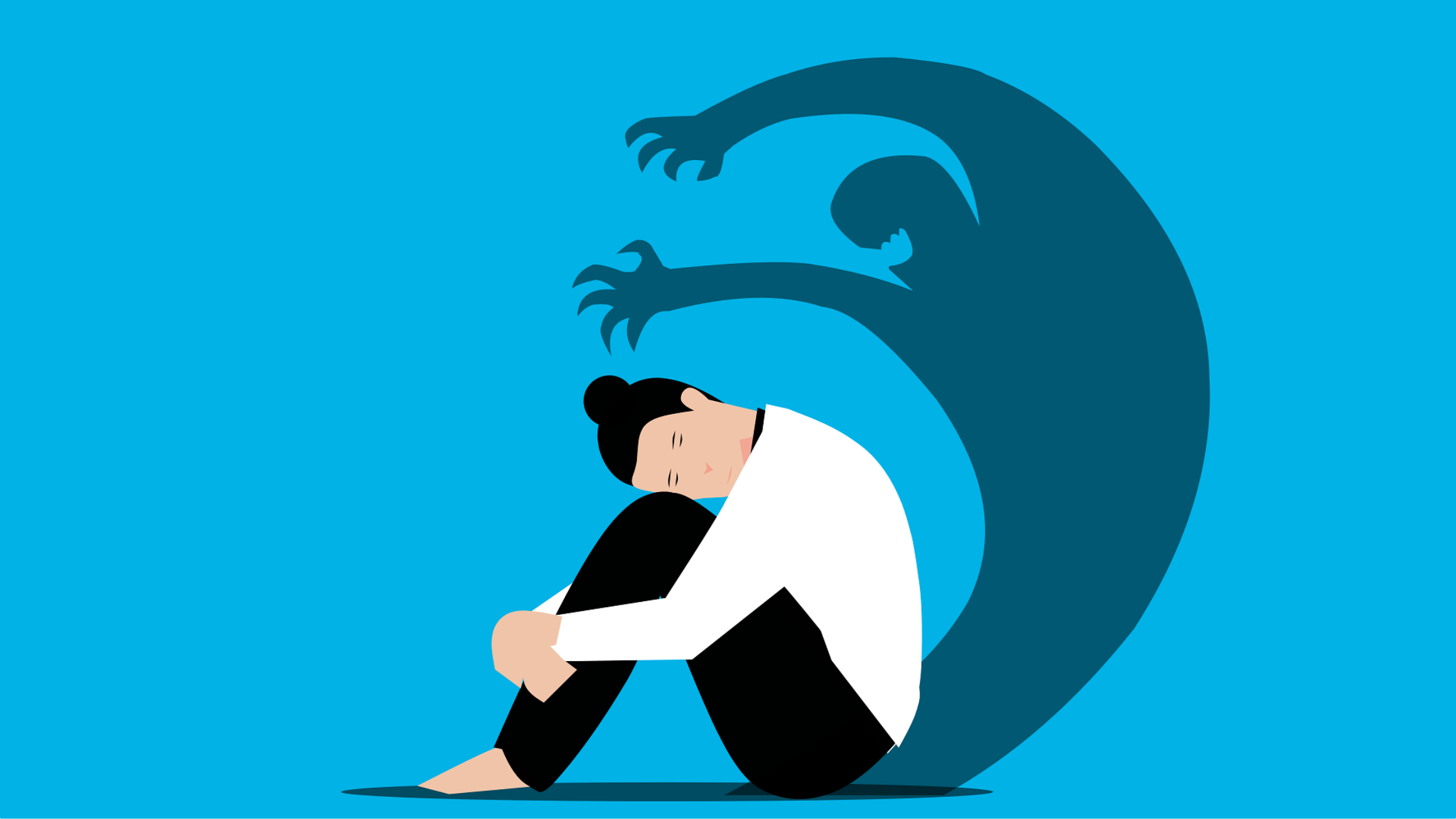It’s possible to be in remission for long periods, especially when living a healthy lifestyle, mostly eating nutritious food, staying physically active, managing stress, and maintaining meaningful relationships.
While living a healthy lifestyle is your best chance at keeping disease activity at bay, environmental triggers, life events, and overbooked schedules can each be enough to put our health into an unexpected tailspin.
One winter, I had been eating clean, managing stress, and plugging along just fine each day. Without warning, I was horizontal on my couch with what we thought was the flu. It’d been going around the office, so I wasn’t surprised I caught it. It’s difficult to avoid getting sick while taking immunosuppressants.
After three weeks of no improvement, I was admitted to the hospital, where they ran a gamut of tests. The worst part was my new “roommate,” constantly groaning in pain, sounding like a dying animal, making it impossible to get any sleep. Overly exhausted, undernourished, and missing my kids terribly, I felt every ounce of this autoimmune disease crushing my spirit.
In those moments of utter despair, it’s important to have tools to use anywhere at any time to help you cope with sensory overload and work through tough situations.
Go-To Tools to Help You Through Tough Times with Autoimmune Diseases and Chronic Illnesses
When your world feels like it’s crashing down, your focus should be comfort and self-care. That can be difficult when emotions are running high, so our community has compiled a list of tools to keep in your back pocket for the next time you unexpectedly need them.
1. Your Breathe
When we’re anxious, our bodies tense up, our breathing shallows, and an abundance of cortisone/stress releases into our systems. To reduce anxiety quickly, deep breathing is the surest, most effective way to reduce heart rate. Our bodies are very trainable; we must tell them what to do. The simplest way to do that is to breathe out longer than when you inhale.
Guided meditation videos and podcasts are a great way to learn various breathing methods. Training your mind and physiology through breath has been shown to reduce anxiety while increasing focus and concentration, which can also help with brain fog.

2. Change Views
Getting outside isn’t always feasible, especially if you’re stuck in a hospital room, but changing rooms, or even just chairs, can give you a quick boost in mood. Sometimes even the slightest shifts in perspective can spark a new and hopefully more positive chain of thoughts. Looking at positive images can influence your mood if you have limited mobility.

3. Get Thanking
There is always something to be grateful for. The simple act of noting or writing down a few things you’re thankful for helps squelch negative thinking and helps put things into perspective. It also creates an attitude shift that can positively impact everything from our relationships to our health.
Gratitude is an antidote to worry, stress, and anxiety. It also improves happiness by increasing positive emotions like joy, contentment, love, and pride. Gratitude helps people sleep better and increases energy levels and appreciation for others.
Two easy ways to practice gratitude:
1. Expressing gratitude verbally (to yourself or someone else). Thanking someone who has helped, been kind to you, or brightened your day goes a long way.
2. Note what you’re thankful for in a journal or mobile app. Any notebook will do, but journals and mobile apps like Gratitude offer prompts to help you get over any blocks.

4. Get Grounded
Have you heard of grounding or earthing? It’s the idea that connecting with the earth by walking barefoot or lying on the grass can positively affect the body. And it turns out; science is starting to back this theory up.
Research has shown that grounding can help reduce inflammation and pain and improve mood. Amazingly, something as simple as taking off your shoes and connecting with the earth can profoundly impact your health and well-being. So next time you have the chance, why not try it? Who knows, it might just make you feel a little better.

5. Watch Nostalgic Shows
We’re giving you permission to veg out! The familiarity of nostalgic shows can provide security and calmness, especially when life is chaotic. Mindless shows are also easy to turn on in the background to help decompress in the short term. Set a timer or show limit because too much screen time can exacerbate depression symptoms.

6. Listen to Music
Music has a way of affecting our mood like no other.

It’s amazing how a good beat and catchy lyrics can turn a bad day into a good one in minutes. Whether you’re into pop, rock, hip-hop, or classical, it’s all about finding what works for you. Sometimes, all it takes is a few tunes from your favorite artist to get you out of a funk. So pop in those earbuds, crank up the volume, and let the music take you to a better place.

7. Light Hobbies
You know those days when your body doesn’t want to cooperate? When even getting out of bed feels like a Herculean feat? Those are the moments when having a few go-to hobbies in your back pocket is essential. Maybe it’s knitting, puzzling, or coloring. Maybe it’s something else entirely. Having a favorite activity that doesn’t require a ton of physical stamina can be a game-changer. Not only do they help you pass the time, but they can also work wonders for your mental health.
When you’re feeling anxious or stressed, there’s something incredibly soothing about focusing on a creative project for a while. So next time you’re in need of a bit of zen, reach for your crafting supplies and get to work. Your body (and mind) will thank you.
8. Family and Friends
Relationships are the ultimate human experience. When nurturing and long-lasting, they can bring about a sense of belonging and purpose that is hard to come by otherwise.
The feeling of being seen and valued in a relationship is powerful, and it can boost our mood and self-worth in ways we may not realize.

When we have someone who listens, understands, and appreciates us for who we are, we feel more able to express ourselves and show our vulnerability. And, of course, having a supportive partner or friend can make all the difference in our daily life.
But did you know that chemicals in our brains are released when we form close and loving connections with others? Dopamine and endorphins are two of the many feel-good hormones that can make us feel happier and more fulfilled. Lean into your close relationships, especially during challenging times.
9. Faith and Spirituality

Faith can be tricky because it often intersects with religion, which people have strong opinions about. At our community, we believe that spirituality comes in different shapes and sizes, and you can lean into whatever resonates with you.
Whether it’s religion, the universe, or any other belief system, there’s power in positive thoughts and prayer that can help us find peace even in the midst of chaos. It’s amazing how letting go of the things we can’t control can strengthen our faith. So, take a deep breath and trust that your beliefs will guide you.
10. Develop a Flare Care Plan Before You’re in a Flare
Anyone with an autoimmune disease knows flare-ups and tough mental health days can be a real struggle. When you’re in the thick of it, it can feel like trying to climb a mountain with a backpack full of bricks. Everything seems difficult and exhausting. That’s why a plan is so important before you hit rock bottom.

When you’re feeling well, set up a support system and pick out activities you enjoy and find relaxing. That way, when things get tough, you’ll have a blueprint for caring for yourself during hard times. The simple act of having a plan can help us through.

Try the Tools Before You Need Them
You know what they say, practice makes perfect! The same goes for your toolkit. Don’t wait until you’re in a crisis to experiment with different tools. Take your time to try different tactics and see what works best for you.
The great thing about trying out new tools when you’re open-minded is that you may discover something you never thought would work for you. Plus, once you find what works, you’ll already be a pro when using it in a real situation. So don’t be afraid to get out there and try something new. Trust us – your future self will thank you.

 Karin W
Karin W 






